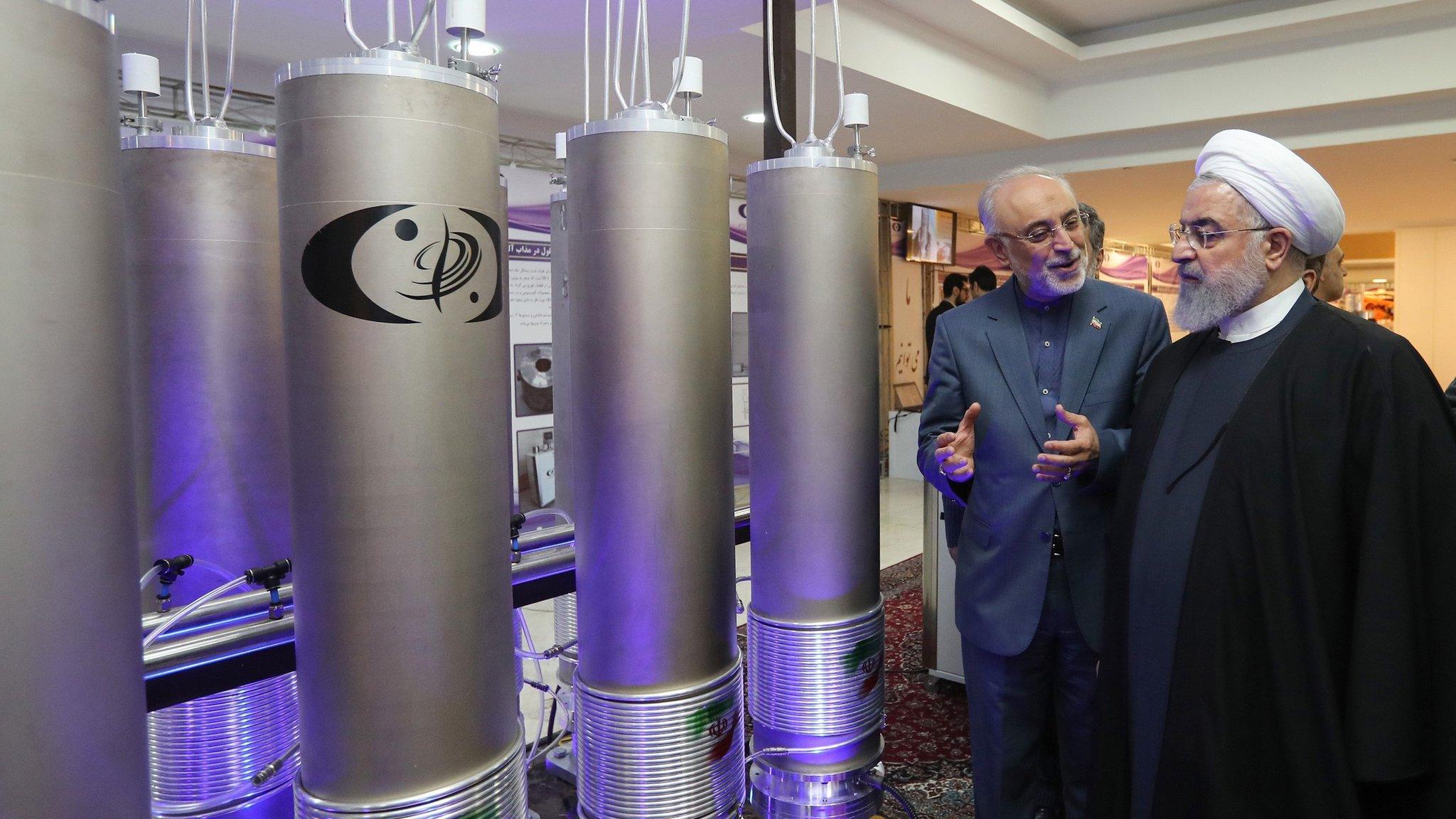Iran's Mohsen Fakhrizadeh: Why was he assassinated?
- Published
The road near Tehran where gunmen opened fire on Mohsen Fakhrizadeh
Unknown to most Iranians until Friday, when he was assassinated, the nuclear scientist Mohsen Fakhrizadeh was well known to those who followed Iran's nuclear programme. Western security sources regarded him as instrumental.
Iranian media downplayed Fakhrizadeh's importance, introducing him as a scientist and researcher involved in the search for "homegrown test kits for Covid-19" in recent weeks.
Mark Fitzpatrick, an associate fellow with London's International Institute for Strategic Studies (IISS) who follows Iran's nuclear programme closely, also tweeted: "Iran's nuclear program is long past the point when it is dependent on a single individual, external".
Yet we know that when he was attacked Fakhrizadeh was accompanied by several bodyguards, indicating how seriously Iran took his security.
So, the motive for the assassination - for which no one has claimed responsibility - would appear to have been political, rather than relating to Iran's nuclear activities.
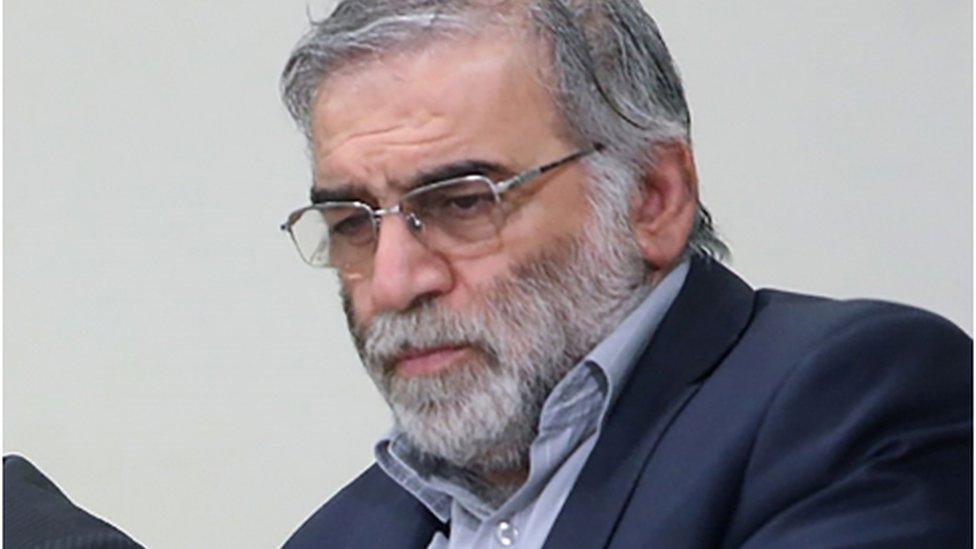
Mohsen Fakhrizadeh, pictured in an undated photo, was head of the ministry of defence's research and innovation organisation
Two possible motives stand out: firstly, to jeopardise potential improvements in relations between Iran and the new Biden administration in the United States. And, secondly, to encourage Iran to engage in a retaliatory act.
"The enemies are experiencing stressful weeks," said Iranian President Hassan Rouhani in his first remarks on the assassination.
"They are mindful that the global situation is changing, and are trying to make the most of these days to create unstable conditions in the region," he added.
When Mr Rouhani refers to Iran's "enemies", he is evidently talking about the Trump administration, Israel and Saudi Arabia.
Both Israel and Saudi Arabia are worried about the changing tide of politics in the Middle East and its consequences for them once President-elect Joe Biden takes office.
Mr Biden made it clear during his election campaign that he wished to rejoin the Iran nuclear deal, which was negotiated by his predecessor Barack Obama in 2015 and forsaken by Donald Trump in 2018.
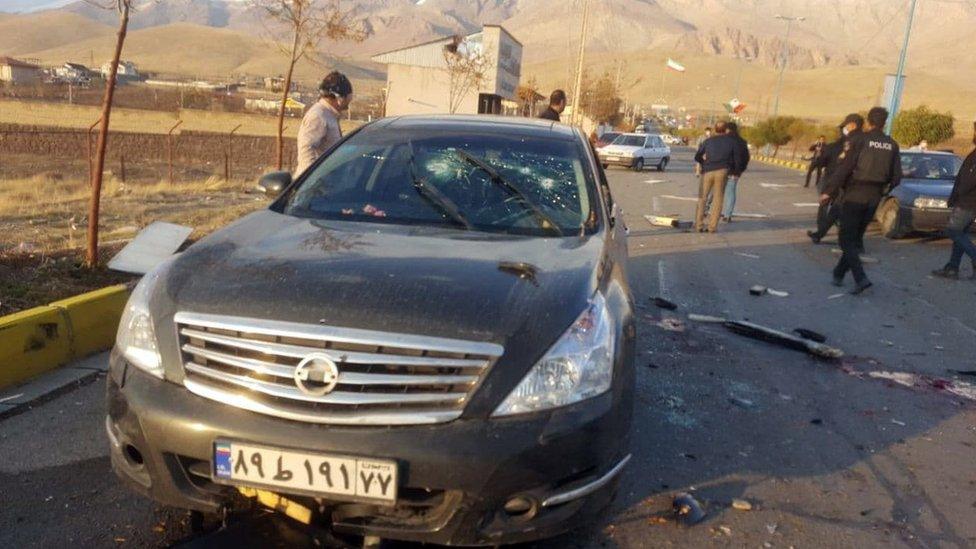
Fakhrizadeh was wounded in the attack and later died in hospital, officials said
Israel and Saudi Arabia's concerns about Iran were reportedly discussed at what Israeli media said was a secret meeting between Israeli Prime Minister Benjamin Netanyahu and Saudi Crown Prince Mohammad bin Salman in Neom last Sunday. The Saudi foreign minister denied that the meeting took place.
Mr Netanyahu was reportedly also not successful in persuading the prince to normalise diplomatic relations between their two countries.
On Monday, when Iran-backed Houthi rebels in Yemen attacked a facility belonging to the Saudi oil giant Aramco in the Red Sea city of Jeddah, the opportunity to reproach the Saudis might have arisen.
The hardline press in Iran boasted about "the heroic Quds-2 Ballistic Missile attack" by the Houthis.
"It was a strategic move, well timed to coincide with the Saudi-Israeli meeting, warning them not to miscalculate their moves," said the Mehr news agency.
The Saudis' anger at the attack was shared by the Americans.
Former US National Security Adviser John Bolton explained in his book, The Room Where It Happened, how the Trump administration viewed Iran's support for Houthis as "a campaign against US interests in the Middle East".
The reported Neom meeting was said to have been arranged by US Secretary of State Mike Pompeo, who had just been to Qatar and the United Arab Emirates (UAE), where Iran was the main topic of conversation.
Two weeks earlier, President Trump had asked his senior advisers whether he had options to take military action against Iran's main nuclear site, according to US media. He appeared to be looking for a showdown with Iran before his departure.
In January, Mr Trump boasted about the assassination in a US drone strike in Iraq of the top Iranian military commander, Gen Qasem Soleimani, despite it later being pronounced by a UN special rapporteur as "unlawful".
"We stopped him quickly and we stopped him cold... at my direction," he said.
So, it could be argued that assassinations are not altogether opposed by the president.
His Iranian counterpart has blamed Israel for the assassination of Fakhrizadeh.
And, indeed, many reports note that Prime Minister Netanyahu was one of the few world leaders to have spoken directly about the scientist.
In a televised presentation in 2018, he talked about Fakhrizadeh's leading role in Iran's nuclear programme, external and urged people to "remember that name".
While Israel is secure knowing that the US will remain committed to its security under Mr Biden, it must be concerned that his nominee for secretary of state, Antony Blinken, is a staunch supporter of the Iran nuclear deal.
Mr Blinken's approach to the Middle East may also lead to more opportunities for the Palestinians. He was critical of Mr Trump's decision to move the US embassy in Israel from Tel Aviv to Jerusalem, although Mr Biden has said he would not reverse it.
Students of Iran's Basij paramilitary force rallied in front of the foreign ministry in Tehran
Iran's Supreme Leader, Ayatollah Ali Khamenei, has called for a "definite punishment" of those responsible for the assassination of Fakhrizadeh.
The head of the Expediency Council, Mohsen Rezaei, has pointed to security and intelligence lapses.
"Iranian intelligence agencies must detect infiltrators and sources of foreign spy services, and thwart the formation of assassination teams," he said.
Indeed, many Iranians on social media have asked how, despite Iran's rhetoric about its military and intelligence superiority, someone so well-guarded could be assassinated in broad daylight. There are also concerns that the killing will be used as an excuse for further arrests inside the country.
Now that the Trump administration is on its way out, and Israel and Saudi Arabia are losing their main ally, Iran is looking forward to the possibility of sanctions relief from the Biden administration and the chance to rebuild its economy.
As such, it would be irrational to choose retaliation.
Dr Massoumeh Torfeh is a research associate at the London School of Economics (LSE) and School of Oriental and African Studies (SOAS), specialising in the politics of Iran, Afghanistan and central Asia. Formerly she was the UN director of strategic communications in Afghanistan.
- Published28 November 2020

- Published27 November 2020
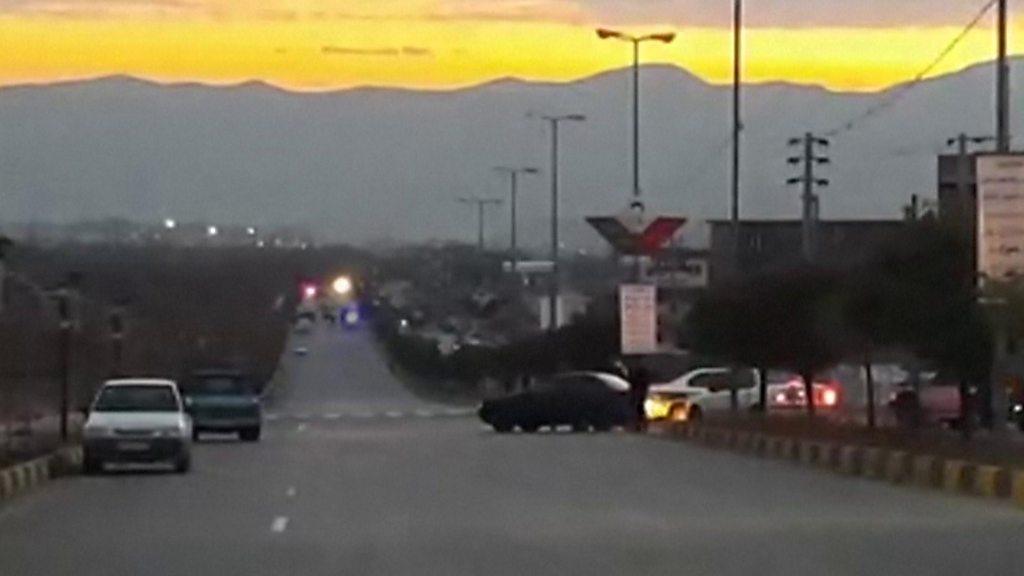
- Published17 November 2020
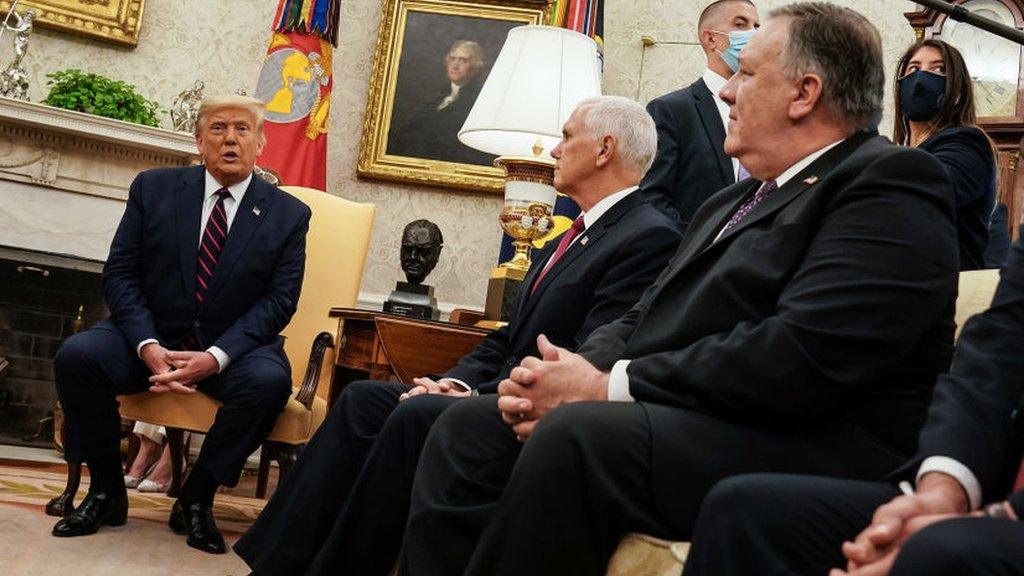
- Published12 November 2020
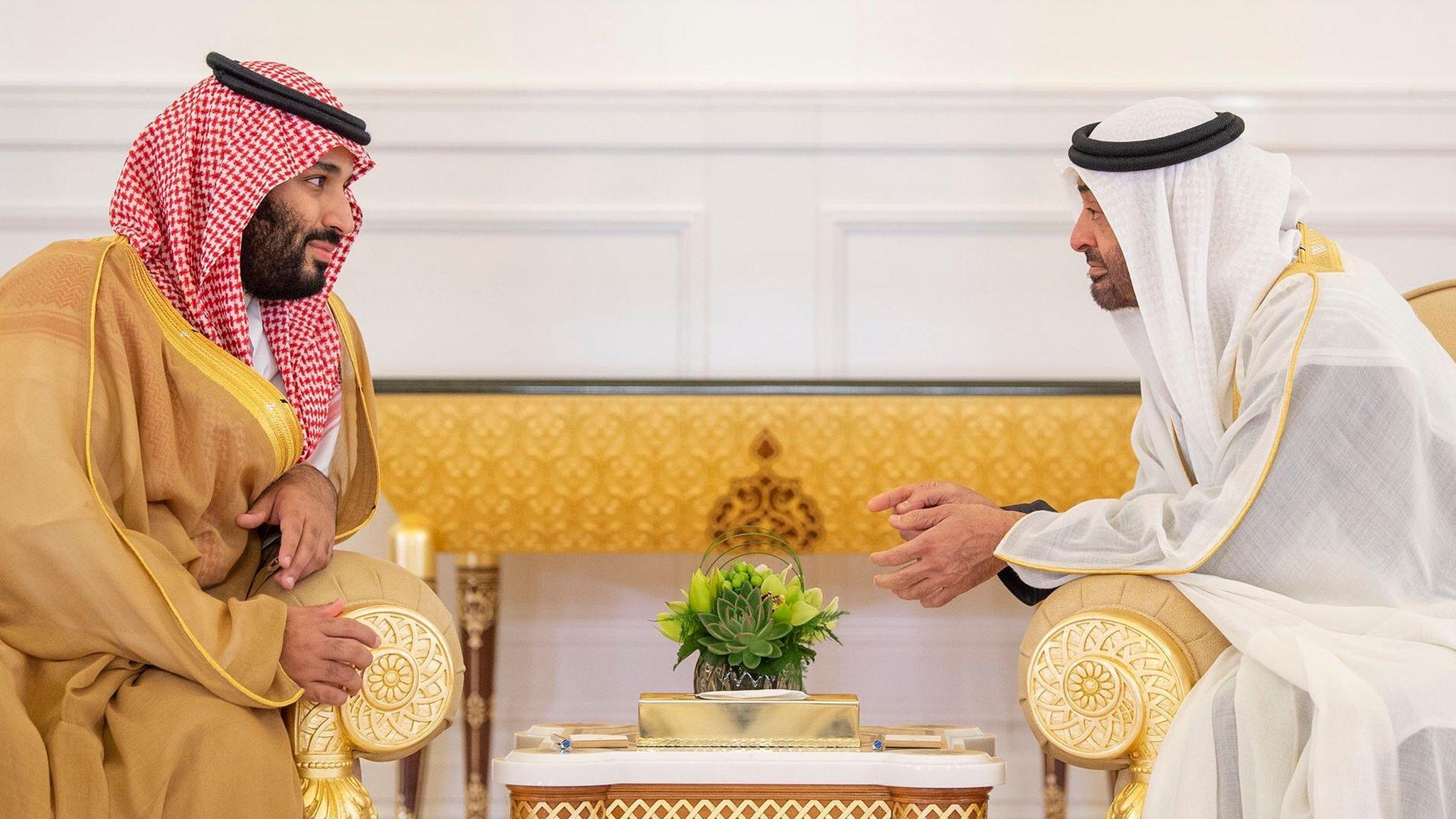
- Published7 November 2020
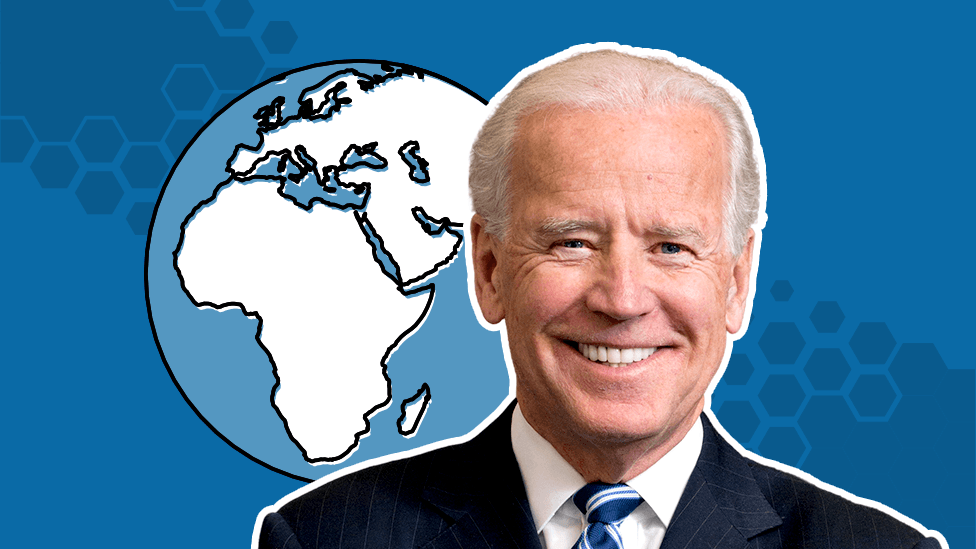
- Published24 October 2020
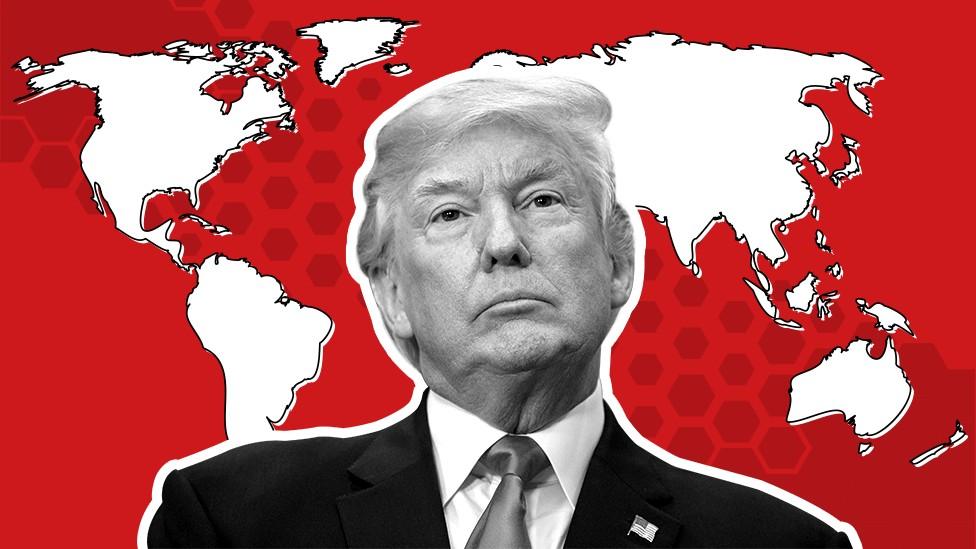
- Published30 April 2021
